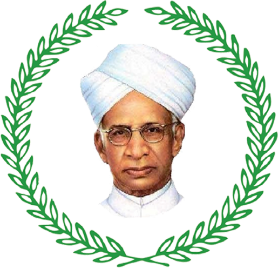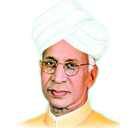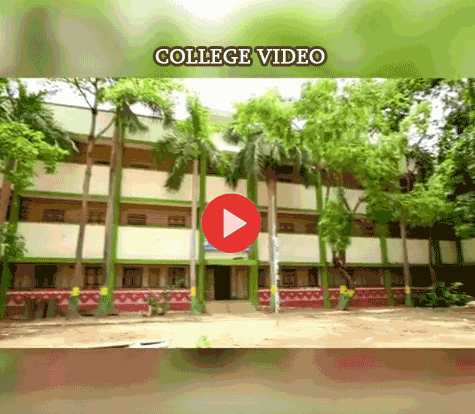National Workshop
Two Day National Workshop on “QUALITY ASSESSMENT, SUSTENANCE & ENHANCEMENT - A JOURNEY WITH NAAC”
Organized by: Internal Quality Assurance Cell, Dr. Sarvepalli Radhakrishnan Government Arts College, Yanam, Puducherry.
Sponsored by: National Assessment and Accreditation Council (NAAC), Bengaluru.
Date: 27th – 28th February, 2020.
NAAC Workshop Inviatation Cards & Prospectus Click Here
NAAC Workshop Photos Click Here
___________________________________________________________________________________________________________
Report on National Workshop:
Addressing the changing paradigms of higher education, the National Assessment and Accreditation Council (NAAC), Bengaluru developed Revised Accreditation Framework (RAF) to make the existing assessment and accreditation process more robust, objective, transparent, outcome oriented and stakeholder friendly.
It is in this context, the Internal Quality Assurance Cell (IQAC), Dr. Sarvepalli Radhakrishnan Government Arts College organized two day NAAC sponsored awareness workshop under the theme, “QUALITY ASSESSMENT, SUSTENANCE & ENHANCEMENT - A JOURNEY WITH NAAC” on 27th – 28th February, 2020. In view of the need of mandatory accreditation for improving quality of Higher Education Institutions in the country, the main objective of this workshop was to make the stakeholders sensitive to quality education, tries to fill the gap of training needed for the faculty members of various colleges in understanding the NAAC Accreditation process and to work towards achieving the Accreditation for their concerned institution.
Registration for the workshop started at 09:00 AM followed by the Inaugural Session. The two day workshop was divided into six sessions and ended with the valedictory session on the second day.
In all, 74 participants attended the workshop. These included 55 in house member and 19 out station participants from the various colleges in Andhra Pradesh, Telangana and Maharastra.
Inaugural Session
Dr. Prasad Rao.T, Coordintor, IQAC welcomed all the guests and participants. The session was presided over by Dr.V.Bhaskar Reddy, Principal Dr. Sarvepalli Radhakrishnan Government Arts College. The session was also graced by Mr. Shivaraj Meena, Regional Administrator, Yanam, Government of Puducherry as the Chief Guest, Dr. M. Satyanarayana, Dean Academics, VSN Group of Institutions and resource persons Dr.G. Mathews Srirangam and Dr. G.Srinivas Rao .
Dr.V.Bhaskar Reddy, Principal Dr. Sarvepalli Radhakrishnan Government Arts College welcomed all the distinguished guests and briefed the participants about the objective and rationale of the workshop. He informed that the Revised Accreditation Framework of NAAC has necessitated documentation of the details on all aspects related to Curriculum, Teaching-Learning, Student Support, Research, Infrastructure, Governance etc. He further expressed a hope that outcome of this workshop will enhance the awareness regarding the NAAC Accreditation process.
Mr. Shivaraj Meena, Regional Administrator, Yanam, Government of Puducherry highlighted the role of NAAC in promoting the quality of Higher Education in India.
The Keynote address was delivered by Dr. M.Satyanarayana, Dean Academics, VSN Group of Institutions. He discussed the changes introduced in the Revised Assessment and Accreditation (A&A) Framework in 2019, representing an explicit paradigm shift making it ICT enabled, objective, robust and transparent. He deliberated on the methodology of assessment and viewed that the changes in the NAAC Accreditation process will bring in greater transparency and accountability. He also mentioned the benefits that the college gets after successful assessment and accreditation by NAAC.
The inaugural session concluded with the vote of thanks proposed by Dr. K. Prasad, Assistant Professor, Department of Economics, Dr. SRK Govt. Arts College, Yanam.
Technical Session I
In this session, Dr.G.Mathews Srirangam made a detailed presentation on the Revised Accreditation Framework of NAAC. He explained minute details of the Assessment & Accreditation (A & A) process beginning with the eligibility criteria to online submission of ‘Institutional Information for Quality Assessment (IIQA)’. He informed the importance of IIQA User Manual and referred it as the ‘Bible’ to understand the of NAAC Assessment and Accreditation Process. He described the Process of NAAC Assessment and Accreditation from submission of IIQA, submission of SSR, DVV process, SSS, PTR and certification. Dr. Mathews Srirangam concluded by saying that each and every data should be supported with verifiable document, therefore utmost care should be taken before submitting the SSR.
Technical Session II
In the post lunch session Dr. G.Srinivas Rao deliberated upon all the seven Criteria to serve as basis for assessment of HEIs in detail. The Key Indicators and various quantitative metrics were explained with suitable examples. He also brought out the differences between the old and new formats of NAAC Assessment and Accreditation Process.
Technical Session III
In this session G. Mathews Srirangam deliberated on Standard Operating Procedures in Assessment and Accreditation by NAAC. He covered all the aspects of Standard Operating Procedure for Data Validatin and Verification (Affiliated UG/PG) and gave us detailed description of documents to be uploaded for validation and verification while submitting the reports to NAAC. The speaker clarified various queries giving examples of different colleges and practices.
Technical Session IV
The second day started early at 9:00 am with the fourth session by Dr.G.Srinivas Rao on the topic ‘Institutionalization of IQAC’. The talk covered various aspects related to formation of IQAC, composition of IQAC, role and functions of IQAC within the institution. Institutionalization is the process of making IQAC activities as the integral part of the institutional working.
Technical Session V
This session was continued by Dr. G.Srinivas Rao on ‘Use of ICT in Teaching–learning Process’. This session introduced the participants to various ICT tools that can be used in the teaching learning process. The live demonstrations were given on use of Google Class-room, presentation tube soft ware, screen recorder app, LMS soft ware, V-lab software and open learning resources.
Technical Session VI
This session was based on hands on training on ‘OUTCOME BASED EDUCATION’ conducted by G.Mathew Srirangam and Dr.G.Srinivas Rao. The participants were divided into groups based the subject of teaching and made to work as teams on the following activity sheets.
|
Activity Sheet 1 |
Programme Educational Objectives (PEOs) |
|
Activity Sheet 2 |
Consistency of PEOs with Vision and Mission of the College |
|
Activity Sheet 3 |
Programme Structure |
|
Activity Sheet 4 |
Programme Outcomes (POs) |
|
Activity Sheet 5 |
Programme Outcomes Coverage |
Technical Session VII
Sharing of experiences was done by the means of paper presentation by some of the participants.
Open Session
The last session of the workshop was to address the queries and questions of the participants. Coordinator, IQAC was the moderator of the session. The queries were related to online submission of AQAR, Student Satisfaction Survey, data on student progression, placement in UG College etc.
Valedictory Session
Valedictory Session was chaired by Dr.V.Bhaskar Reddy, Principal Dr. Sarvepalli Radhakrishnan Government Arts College, Yanam, Dr. Paul Babu, Associate Professor, Dept. of Chemistry and Dr. P.Madavee Latha, Associate Professor, Dept. of Zoology were the guests of the function. Dr.K. Paul Babu gave the valedictory address highlighting the importance of NAAC accreditation and complimented the organizers for the effort in making the workshop a successful event. Dr. J.V.Sudhakar, member of college NAAC Committee summarized the proceedings of the two day National Workshop. Dr. T.Prasad Rao, Coordintor, IQAC thanked the participants for their keen interest and active interaction during the sessions. He also thanked National Assessment and Accreditation Council (NAAC), Bengaluru for extending support in conduct of the workshop. The workshop concluded with distribution of certificates to the participants.



